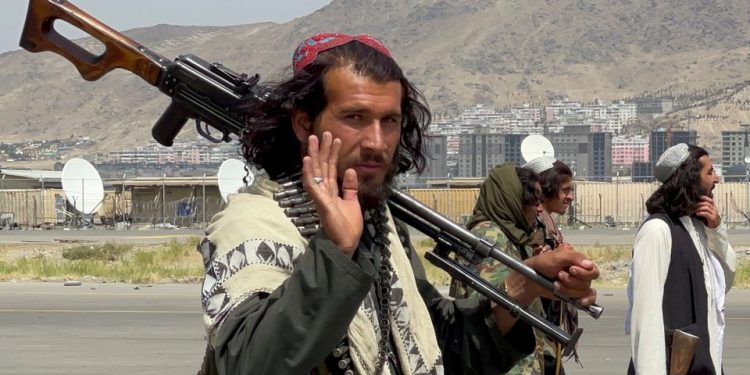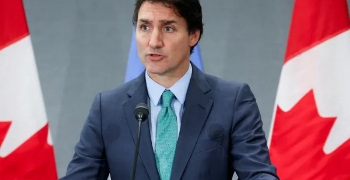India seems to be waking up, at long last, to the reality of maintaining good and workable relationships with its neighbours. Whether it is rather too late in the day or if the adage – better late than never – will hold good only the future can tell. The ruling alliance dominated by the BJP was so blinded by its domestic politics that it could not see or did not care to observe its neighbours turning hostile and choosing other allies. India’s move to host a meeting sometime in the second week of November involving the national security advisers (NSAs) of all countries in the region with a stake in Afghanistan’s stability is an attempt to clutch at the proverbial straw to neutralise the threat of cross-border terror strikes looming large following the takeover of Afghanistan by the Taliban. The move shows the desperation of the BJP-led NDA government to salvage the situation after its empty rhetoric, propelled by domestic politics of communal polarisation pushed most of its neighbours to China’s embrace. India has sent out invites late last week for the in-person NSA-level meeting to Pakistan, Iran, Uzbekistan, Tajikistan, China, and Russia to join the consultations on regional security. Turkmenistan does not join such exercises since it follows a policy of strict neutrality having common borders with Afghanistan. None of the countries have as yet confirmed participation. It may not be surprising if this late reaction does not evoke any positive response from the invitees. This may primarily happen because Pakistan would never be willing to relinquish its superficial supremacy of being the only conduit to the Taliban. On the other hand, China and, through China, Russia has already opened dialogue with the new Afghan setup. This delayed action might be a great success or it could be a total diplomatic debacle. That too, time will tell.
The meeting, a purely Indian initiative – was being planned in April when the world was getting alarmed by the prospect of Taliban take-over following the US pullout. It was hoped then that the ruling Afghan government could hold ground and an inclusive government could be formed once the US troops were out of the country. Hence, the erstwhile Ashraf Ghani government of Afghanistan was among the prospective invitees. The situation has completely changed now and the participation of a representative of the Taliban government would be construed as a great diplomatic blunder as the world has not yet recognised the Taliban government.
It is an irony that India is now wooing Pakistan to take part in the NSA talks after closing the doors of negotiation due to its politics of Pakistan-bashing that gave it electoral dividends in the country. Though Islamabad is an invitee at the NSA talks, it is still not clear whether Pakistan will send its representative at all because of its closeness to the Taliban. Apparently, it will be against Islamabad’s official position to attend a meeting to deal with the situation arising out of the regime change in Afghanistan when no representative from the new dispensation is invited. In fact, it poorly reflects on the Indian government’s handling of foreign policy that Pakistan can now try to bargain with India for an indirect or backdoor recognition of the Taliban government. Pakistan has been trying this for the past few months. It is believed that an informal SAARC meeting could not take place last month because of Pakistan’s insistence on Taliban representation. Incidentally, Pakistan had also lobbied for the Taliban to be represented at the UN General Assembly last month in New York, though without success.
The decision to hold the NSA meeting is reported to have been taken after Prime Minister Narendra Modi underscored the need at the annual Shanghai Cooperation Organisation summit in September for the deployment of counter-terrorism mechanisms as formulated under the SCO Regional Anti-Terrorist Structure (RATS). As India gets increasingly worried about the consequences of the Taliban takeover, New Delhi wants a strategy to be thrashed out without any further delay to deal with Afghanistan. The Taliban have already sent alarming signals to India through atrocities on a section of the Sikh population in that country. Religious fanatics across the globe are getting encouraged by the establishment of Islamic Emirate of Afghanistan. The communal conflagration in Bangladesh by the Jamaat-e-Islami, as stated by a minister of the Sheikh Hasina government, is an indication of the shape of things to come.
India is, of course, trying to build bridges with the Taliban through back-channel talks. This is why it has confirmed it will attend October 20 Moscow Format talks where a representative from the Taliban regime will also be present. The Moscow Format talks were first held in 2017 as an attempt to resolve issues confronting Afghanistan.
Be that as it may, it will be a pipe-dream for India to expect either Pakistan or China to satisfy it by taking a tough stand on cross-border terrorism aided and abetted by the Taliban regime. For, China is already negotiating with the Taliban for including Afghanistan’s participation in its Belt and Road Initiative (BRI). India has opposed it, but the Taliban have shot down India’s objection on the ground that the BRI would provide jobs to its population. The rulers of Afghanistan desperately need to stave off economic collapse. Till March, 139 countries had entered into agreements with China which has helped these nations build roads and ports under the BRI. Taliban spokesperson Suhail Shaheen has made it clear that India rather than Afghanistan needs to change its position on the matter. Hence, the NSA initiative is unlikely to bail India out of the situation complicated by its own short-sighted foreign policy vis-à-vis its neighbours.






































